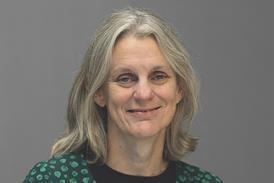An initiative trying to create a ‘universally standardised’ template for non-disclosure agreements has secured the help of a trio of magic circle firms.
The OneNDA project lists Linklaters, Allen & Overy and Slaughter and May as part of its drafting group, together with Norton Rose Fulbright and Australian giant Gilbert + Tobin. The chief executive of Linklaters’ technology arm, Shilpa Bhandarkar, is representing the firm in the drafting group, together with lead innovation lawyer Greg Baker.
A small number of in-house counsel are also contributing to the project, commenting on the NDA template and committing to adopt it once it has been agreed. Among the companies involved are Barclays, American Express, Deliveroo, EY, Airbus and Bupa.
The initiative, co-founded by Electra Japonas and Roisin Noonan of The Law Boutique, launched in February and aims to have a standardised NDA template approved by the week commencing 10 May. It intends to ‘go to market’ in July and attract 1,000 companies by the end of the year.
OneNDA describes itself as a 'peer-to-peer, legal community led initiative' and says there is no cost associated with being involved. It is hoped that a standardised NDA will provide commercial protection without unnecessary delay and minimise potential friction between parties who are beginning a business relationship.
Greg Baker, lead innovation lawyer at Linklaters, said: ‘For many of our clients, NDAs are too often seen as an unwelcome speed bump on the road to parties exploring new business opportunities. Negotiating and agreeing an NDA is usually the first interaction two businesses have with each other before they engage in commercial and business discussions.
‘We’re strong believers in standardisation, automation and a practical business-friendly approach to drafting. There will always be a place for bespoke documents where the sector or business use case requires it, but the oneNDA’s first target – a standard commercial NDA – is an exciting opportunity to change the way we approach NDAs and enable businesses to move faster.’



























20 Readers' comments